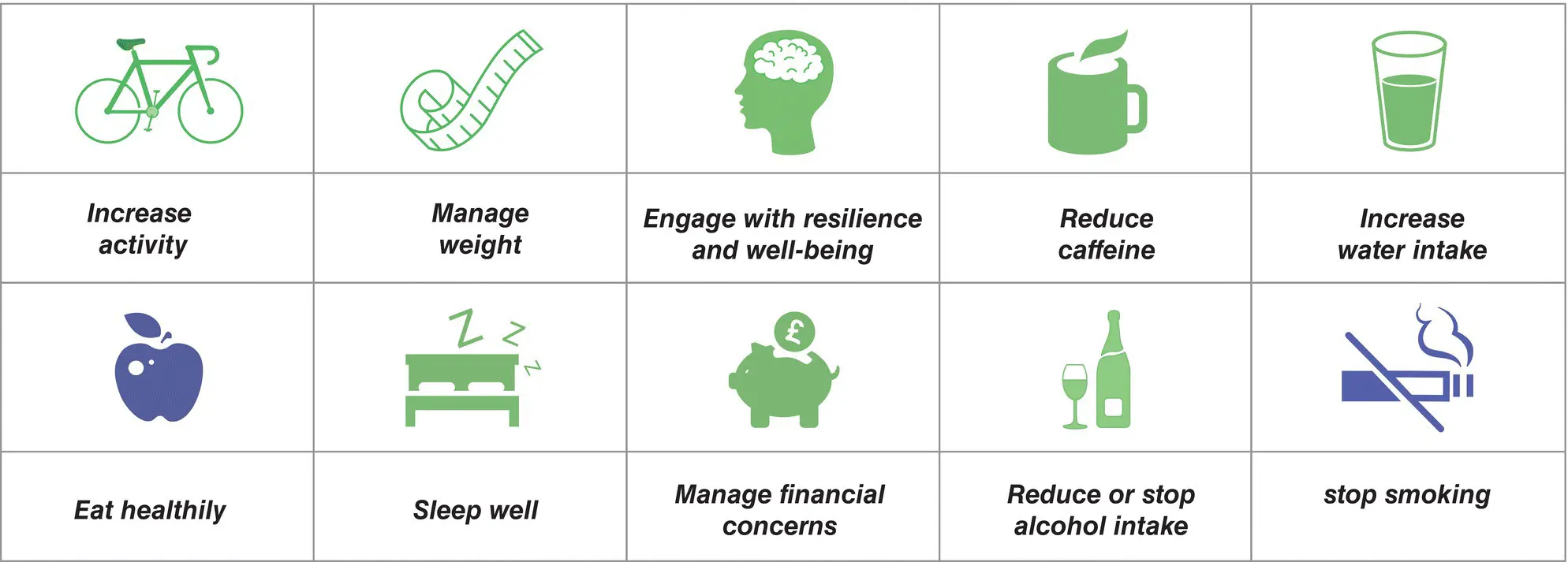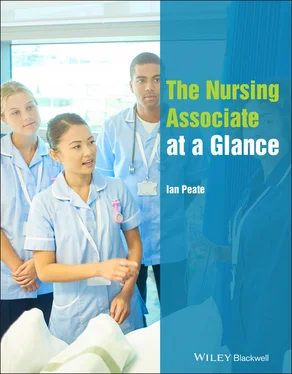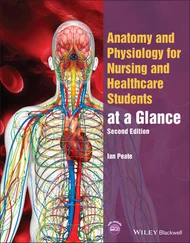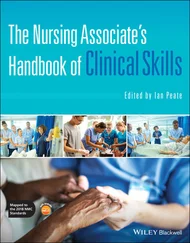Oti returned to work to find out the service had been re‐organised, and her new manager, also a social worker, conducted a welcome‐back‐to‐work meeting. A preceptor plan was developed, and a preceptor was allocated to help Oti achieve her future aspirations and to outline how she could become a fully integrated team member making a difference to the care of others. Oti and her preceptor meet regularly, and Oti is able to fully utilise her full scope of practice. She began to feel valued and that she was making a difference to the people she offered care and support to, and she is celebrating her achievements. Recently trainee Nursing Associates have been allocated to the clinic, and Oti is seen as a central resource and as a support to those who are on the same programme that she was on.
It is OK to not be OK. Seek help early, do not let anxieties fester and use all of the resources available including managers and staff side support, for example, your trade union or professional body.
The NMC Standards of Proficiency for the Nursing Associate requires you understand the demands of professional practice and to demonstrate how to recognise signs of vulnerability in yourself or colleagues and to understand the action that is required to minimise risks to health.
Studying nursing is particularly hard: it involves trying to balance assignments, attending placements, working shift patterns, having a social life and, importantly, finding time for yourself. When registered, a Nursing Associate experiences other pressures that replace those faced whilst studying. Professional practice makes many demands. Regardless of the site of practice, on a daily basis the Nursing Associate engages with sensitive, intimate relationships, facing threats of violence and verbal abuse, grief and death. In some places of work, the atmosphere is enclosed; there are time pressures; a need to implement professional knowledge; excessive noise or undue quiet; sudden swings from intense to routine tasks; no second chance; unpleasant sights, sounds and smells and tense working relationships. These experiences and difficulties appear to be further exacerbated by a number of organisational issues which are instrumental in the stress process.
When the Nursing Associate is confronted by such events and tasks, it is hardly surprising that they report high levels of stress, and the physical and mental impact on the Nursing Associate can be detrimental to their health and well‐being.
Whilst there is stress in all jobs, in those careers dealing with human health, the importance of this issue becomes more sensitive and critical. Stress‐related factors can be considered as a predictor of caring behaviours.
The experience of stress represents a psychological state. It can come about as a result of exposure, or threat of exposure, to the more tangible workplace hazards as well as to the psycho‐social hazards of work. Those hazards of work which are associated with the experience of stress can be termed stressors.
When applied directly to nursing, a situation which is typically experienced as stressful is seen to involve work demands which are threatening or which are not well matched to the knowledge, skills and ability to cope of those involved; or work which does not fulfil their needs, especially where those nurses have little control over work and where they receive little support at work or outside of work.
Recognising vulnerability
Occupational stress negatively affects the Nursing Associates’ health‐related quality of life; it renders the Nursing Associate vulnerable and can influence patient outcomes. Job‐related stress can result in loss of compassion for patients and increased incidences of practice errors, and as such is unfavourably associated with the quality of care.
Verbal or physical abuse can have negative psychological effects that persist after the incident.
With regard to physical health, work‐related stress is linked with many physical health problems including migraines, musculoskeletal pain, long‐term physical illnesses, hypertension, irritable bowel syndrome and duodenal ulcer, and immune and endocrine system illnesses.
Psychiatric morbidity is also associated with occupational stress, at an emotional level. It has been correlated with anxiety, dysthymia, low self‐esteem, depression and feelings of inadequacy. See Case Study 5.1, which outlines the experiences of a vulnerable Nursing Associate who struggled at work to cope.
In responding to stress and the damaging effect it can have on the Nursing Associate and care outcomes, it is essential to acknowledge that stress has the potential to make the Nursing Associate vulnerable to ill health.
The ability to cope with the demands and stress from work may be improved with specific occupational health education and training programmes that enhance knowledge and ability. The approach must address both the individual and the organisation. Facilitation and verbalisation of feelings and experiences, teaching relaxation techniques, conflict solving and positive reappraisal may help with regard to stress response modification and stress coping. Interventions at an institutional and organisational level (employers and universities), including additional managerial support and staff recognition policies, may be helpful in work environments to prevent stress on a primary level. When dealing with stress, knowing where to go for help is also important.
Chapter 6 Health and well‐being: self‐care
At the point of registration, the Nursing Associate will be able to:understand the professional responsibility to adopt a healthy lifestyle to maintain the level of personal fitness and well‐being required to meet people’s needs for mental and physical care.

Figure 6.1 Some components of good health and well‐being.
The Nursing and Midwifery Council’s (NMC’s) health declaration enables them to determine that those applying to join, renew or be readmitted to the register meet their requirements for health to ensure they can practise safely and effectively.
The Nursing and Midwifery Council (NMC)
The health and well‐being of any workforce is important. The Nursing Associate needs to look after themselves as well as others. This is also important when they are managing others; the well‐being of other staff becomes an added concern. At the point of registration, the NMC Code requires all Nursing Associates to maintain a level of health that permits them to undertake their role effectively as well as engaging in health promotion with patients.
In order to be on the NMC’s register, the Nursing Associate must meet a range of professional standards, and one of these concerns is health. Those on the register are part of a profession that has nationally recognised standards that are set by law. When the NMC say that a person is capable of safe and effective practice, they mean that they have the skills, knowledge, character and health to work in their profession safely and effectively.
When an approved programme of study has been successfully completed by the Nursing Associate, this does not guarantee that they will be able to register. Sometimes when a trainee Nursing Associate has completed an education programme and declares information to the NMC, their application may be rejected. All trainee Nursing Associates seeking registration (or once qualified during revalidation) are to be of good health to satisfy the NMC that they are capable of safe and effective practice. The NMC’s concern is whether the Nursing Associate has a health condition and/or disability which could affect practice. The NMC needs to be able to assess whether it may place at risk the safety of those they offer care and support to.
Читать дальше













